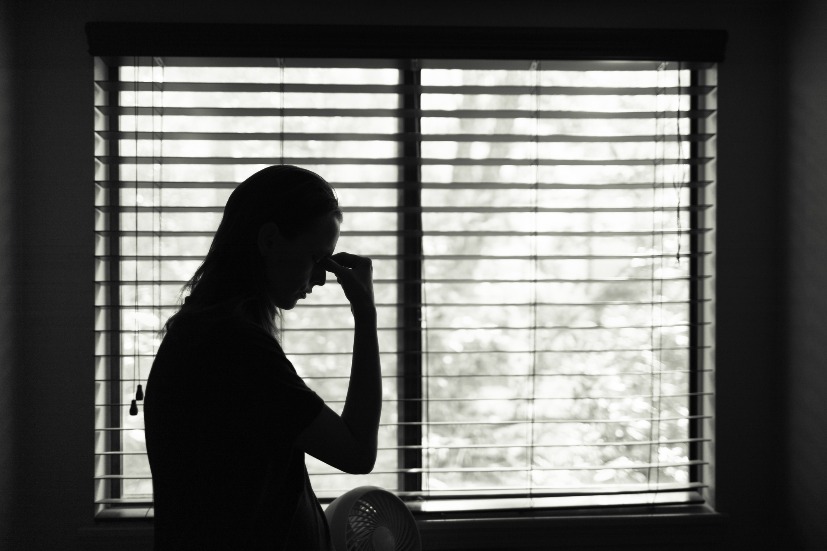The signs of anxiety and depression started early for me, but I didn’t have the language in elementary or middle school to talk about it – nor did I have the tools to deal with it. In my senior year of high school, I hit rock bottom. Completely distraught and desperate, after weeks of barely sleeping or eating, I finally dragged myself to see a school counselor. I was student body president and president of our drama club, and I was embarrassed to ask for help. But my desperation scared me enough to overcome my shame, and I got the essential help I needed.
I’ve spent my entire adult life researching and developing tools to help me manage my anxiety and depression, but I wish I had those tools as a teenager. Our children today desperately need these tools – even more than I do. I wasn’t dealing with added anxiety about gun violence in schools, the trauma of the pandemic, and the intense pressures of social media. And as a mother of two, I worry about the effects these outside stressors have on my own children.
The statistics on mental distress among high school students are alarming. Forty-two percent of high school students report lingering feelings of sadness or hopelessness, and nearly a quarter say they have seriously considered suicide in 2021, according to the CDC’s Youth Risk Behavior Survey. A 2020 Cigna study also found loneliness to be at epidemic levels in this country, with more than 70% of Gen Z Americans reporting feeling lonely and disconnected. We are in the midst of a serious mental health crisis among young adults.
Among LGBTQ youth, the numbers are high: 45% of LGBTQ youth have seriously considered suicide in the past year. And 60% of LGBTQ youth who wanted mental health care in the past year couldn’t get it, according to a study by the Trevor Project.
These stark statistics represent hundreds of thousands of young Americans. They are our children, our neighbours, our friends, our students and they urgently need support and resources. I regularly hear from Vermonters who feel ill-equipped to deal with this public health emergency.
I learned that the vital first step in dealing with this crisis is to tackle the stigma head-on. To combat the stigma around mental health treatment, we need to normalize the experience. Recognizing mental illness doesn’t make you weak, it makes you human. When we talk about it openly, we give others permission and courage to speak openly and promote healing. This is why I pledge to be open about my own struggles as I introduce legislation that empowers our young people to support each other in times of crisis.
The Peer Education and Emergency Response (PEER) for Mental Health Act establishes a grant program that supports the training of teachers, school staff, parents, caregivers, and students in mental health first aid. This training helps us identify, understand and respond to signs of mental illness and substance use disorders in ourselves and others. It includes training in risk assessment, non-judgmental listening, information and reassurance, prompting for professional help as well as self-help strategies. This legislation will build on the great work already done to support early intervention and the development of mental health and wellbeing.
We know that intervention by educated peers can make a real difference for people struggling with mental health issues. A systematic review and meta-analysis of mental health first aid training in 2018 showed that people with mental health first aid training had more knowledge; demonstrated better recognition of mental disorders; held fewer stigmatizing beliefs; and were better able to help someone with symptoms of mental health issues.
When I was a middle school teacher, we often offered first aid and CPR training to our students. They were insatiable learners and wanted the tools to be useful to their friends and community members. More than first aid and CPR, mental health first aid is what we need most now, based on my conversations with parents, teachers, and students.
Mental health first aid training will not, and should not, replace training, recruiting, and hiring more counsellors, psychologists, and psychiatrists. We need more mental health professionals in every congressional district across the country. We also need to invest in resources for professional intervention, but our children want and need to learn the skills to uplift and support their friends and classmates. The students tell me that their friends are already asking them to do it, but that they don’t have the necessary knowledge. It leaves them feeling overwhelmed.
To fully support America’s youth, this should be another tool in the resource toolbox. We cannot look away from their suffering. We must stand by them and commit to doing better for them and for their families. To address this mental health crisis — an emergency that affects every community and congressional district — I call on my colleagues on both sides of the aisle to join me in investing in practical, cost-effective, and immediate solutions to equip our children and teens with tools that will help them lead healthier, more stable and fulfilling lives.
Becca Balint represents Vermont as a whole.
Copyright 2023 Nexstar Media Inc. All rights reserved. This material may not be published, broadcast, rewritten or redistributed.

